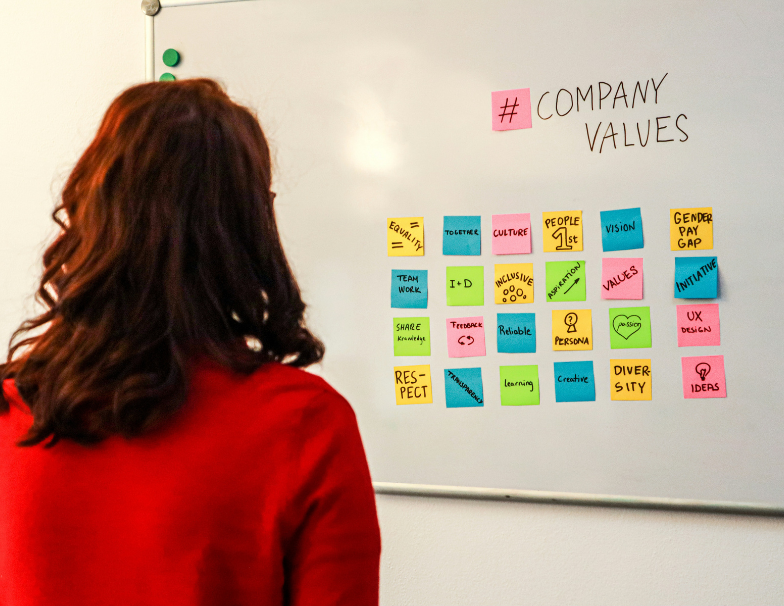Top Strategies for Achieving Team Building Objectives and Goals

Setting clear team building objectives and goals helps enhance teamwork, communication, and morale. This article covers key objectives and goals and provides strategies to achieve them effectively.
Key Takeaways
- Team building activities enhance collaboration, communication, and morale, creating a cohesive company culture that boosts productivity and employee engagement.
- Effective team building promotes creativity and leadership development through structured activities that foster trust, collaboration, and a supportive work environment.
- Measuring team building success through feedback and productivity metrics is crucial for identifying strengths, areas for improvement, and the overall impact of team building initiatives.
Understanding Team Building Objectives

Team building activities aim to enhance collaboration, communication, and morale among team members. A supportive environment among employees reduces miscommunication and boosts productivity. Organizational leaders often utilize team building activities to motivate employees and enhance overall morale in the workplace, thereby fostering a strong company culture.
Team building activities not only develop a cohesive company culture that aligns with the organization’s values and priorities but also significantly enhance employee morale and employee engagement. Immediate objectives often include fostering creativity and building relationships among team members. Focusing on these objectives helps create a more engaged, productive, and satisfied workforce.
Key Goals for Effective Team Building
Effective team building significantly enhances productivity by creating a supportive environment in which employees feel valued. When team members and teammates feel a sense of belonging and support, they are more likely to work together efficiently and contribute to the company’s working goals.
Creativity thrives in collaborative settings, making team building essential for generating innovative ideas. Team building activities help employees develop leadership skills crucial for achieving organizational goals. Well-structured team building can transform passive workers into active contributors, thereby improving engagement levels among employees.
Enhancing Communication Among Team Members
Effective communication in team building:
- Reduces miscommunication and improves productivity.
- Develops communication skills through team activities, reducing misunderstandings and increasing team efficiency.
- Encourages open dialogue among team members, fostering collaboration and building trust.
Clear communication methods significantly reduce misunderstandings and enhance collaboration. When everyone on the team understands the process and knows how to communicate effectively, it fosters a more harmonious work environment, ultimately improving overall team performance through open communication by setting clear expectations.
Building Trust and Collaboration
Trust among team members facilitates quicker decision-making and encourages sharing bold ideas. Collaborative activities that require mutual responsibilities help build trust within a team. A culture of trust ensures that everyone feels heard and establishes clear guidelines for collaboration.
Celebrating milestones collectively among teams builds trust and reinforces a sense of achievement. Acknowledging and celebrating collective efforts strengthens bonds and encourages further collaboration, as individuals work together to achieve shared goals. Together, we have achieved our goals.
Encouraging Creativity and Innovation

Team building activities inspire creativity and innovation by:
- Promoting brainstorming and diverse insights
- Breaking the monotony of routine work, allowing employees to explore new perspectives and creative solutions
- Fostering a culture of innovation through creative challenges
- Encouraging risk-taking through a team building activity
Many team building exercises require participants to collaborate as a group, which enhances their ability to think collectively and approach challenges innovatively. Offsite gatherings might inspire creativity by providing a new setting that encourages outside-the-box thinking and needed meets the needs of the team.
Developing Leadership Skills
Team building activities play a crucial role in developing essential leadership qualities such as decision-making, delegation, and motivational skills. Exercises simulating real workplace challenges improve leadership skills by fostering accountability and proactiveness, which makes a significant difference in acquiring new skills.
Team building creates an environment that empowers individuals to take initiative and develop leadership capabilities. A supportive atmosphere during team activities encourages risk-taking and experimentation, which are essential for nurturing leadership qualities. Offsite team building provides the necessary structure and space to achieve lasting leadership development.
Boosting Morale and Motivation
Team building activities can positively contribute to forming deeper relationships among coworkers, which in turn can impact overall job satisfaction. They offer several benefits:
- Enhance employee morale, resulting in increased retention and productivity rates.
- Provide employees with opportunities to engage in cooperative experiences.
- Strengthen interpersonal relationships through fun team building games.
Ways to promote team spirit and increase employee motivation include:
- Team outings or volunteer experiences
- A peer-to-peer recognition system that allows teams to celebrate each other’s accomplishments, significantly boosting morale.
- Celebrating individual and team achievements to strengthen relationships and improve overall team communication
Measuring the Success of Team Building Activities
Surveys, individual feedback, monitoring relationships, and tracking productivity metrics are effective methods for evaluating the success of team building. Workplace metrics such as absenteeism, sales growth, task completion, and customer satisfaction should be tracked to measure team building effectiveness.
Feedback after team building activities helps identify strengths and areas for improvement. Comparing pre-activity and post-activity data highlights changes in team dynamics, performance, and investment returns, which are crucial for evaluating the effectiveness of team building.
Practical Tips for Setting Team Building Goals
Defining the team’s purpose with measurable goals and timeframes is crucial for motivating the team. Using SMART criteria can help ensure that team goals are:
- Specific
- Measurable
- Achievable
- Relevant
- Time-bound.
Involving the team in the goal-setting process fosters ownership and commitment, increasing motivation and engagement. Clear expectations and structured goals lead to better results; clarifying goals in written form helps mitigate inefficiencies. Creating teams based on members’ skill sets can enhance goal clarity and effectiveness. Additionally, when teams set goals together, it can further strengthen their collaboration, contributing to the team’s overall success.
Overcoming Common Challenges in Team Building
Conflict resolution strategies in team building activities help manage and prevent interpersonal conflicts effectively. These strategies include:
- Addressing personality clashes that can harm cooperation
- Using mediation or adjustments in assignments to resolve conflicts
- Teaching negotiation, communication, and empathy skills to help with problem-solving conflicts
Encouraging risk-taking and trying new things promotes team building. Setting realistic targets is crucial as overambitious goals can demoralize the team. Ensure that you establish a routine for monitoring progress and providing feedback, as getting it right is essential for maintaining momentum in team goals and overcoming the critical challenge. We encourage this approach to foster a positive environment.
Benefits of Offsite Team Building Events

Offsite offers the following benefits:
- Partners with thousands of vetted venues globally to negotiate discounts for users.
- Users may find exclusive discounts of up to 50% on curated venues and vendors, like those offered by top-rated service providers.
- Proposals are received within 48 hours after submitting booking requests.
Offsite simplifies and reduces the cost of planning corporate retreats compared to organizing them independently. Stress-free planning is guaranteed when using Offsite for corporate retreats. Annual team building retreats unite a dispersed workforce and facilitate the development of close relationships among team members and the organization.
Team building activities lower hiring and training costs, enhance employee satisfaction, and improve a company's reputation. Offsite offers end-to-end retreat planning services at a flat, per-person rate.
Summary
In summary, practical team building activities are essential for enhancing collaboration, communication, and morale among team members. By focusing on clear objectives and goals, organizations can create a cohesive, productive, and innovative workforce.
Team building not only fosters a supportive work environment but also develops leadership skills, boosts morale, and enhances overall employee engagement. Investing in team building activities and off-site events can yield lasting, positive outcomes for any organization.
FAQs
- How does Offsite ensure users receive discounts?
Offsite ensures users receive discounts by partnering with thousands of vetted venues globally, enabling them to negotiate favorable rates. This partnership approach guarantees users access to valuable offers.
- What is the benefit of using Offsite compared to planning retreats independently?
Using Offsite streamlines the planning process, making it faster, easier, and more cost-effective than organizing corporate retreats independently. This efficiency enables you to focus on engaging in productive activities rather than dealing with logistical details.
- What guarantees are provided when using Offsite for corporate retreats?
Utilizing Offsite for corporate retreats ensures stress-free planning, resulting in a smoother and more enjoyable experience for your team.
- What type of fees does Offsite offer for its planning services?
Offsite provides a flat fee for its planning services, ensuring there are no hidden costs involved. This transparent pricing model allows for straightforward budgeting and planning.
You may also like
Unique spaces for your next offsite
Find distinctive venues for your upcoming corporate retreat.
Stay Updated with Our Insights
Get exclusive content and valuable updates directly to you.







